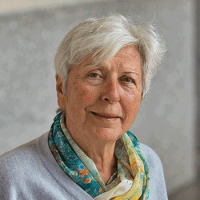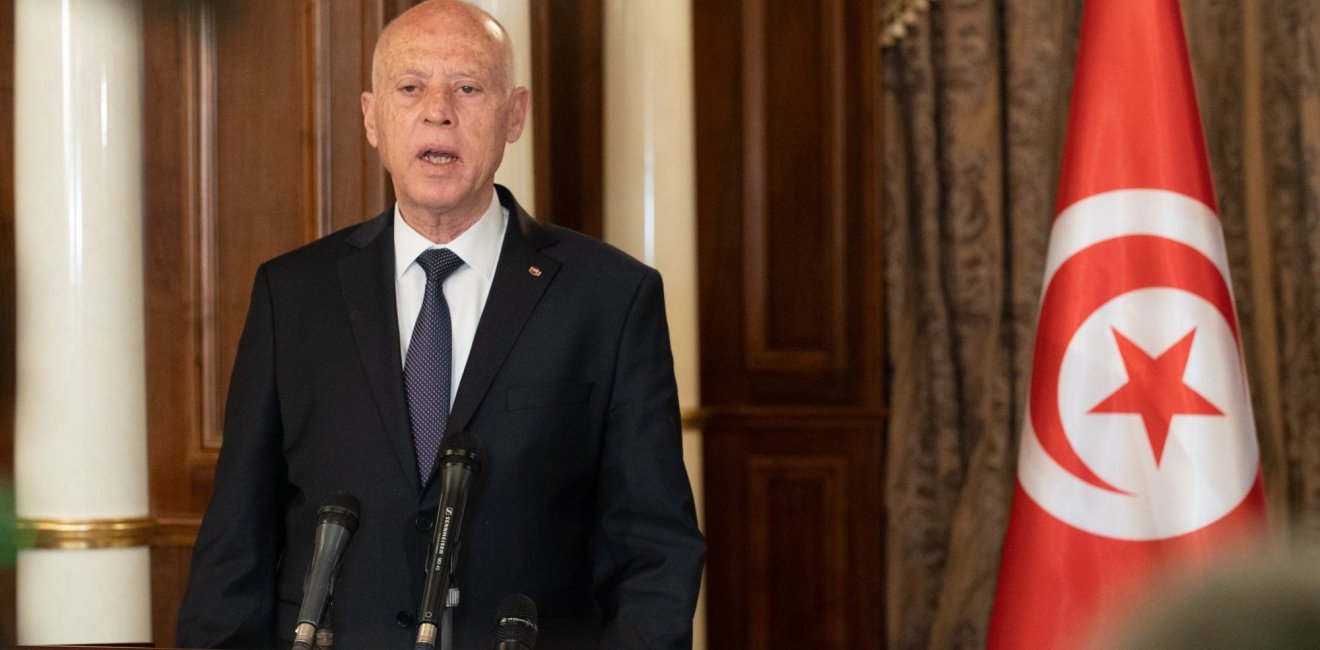The draft of a new constitution posted in the Official Journal of the Tunisian Republic (JORT) on June 30 presents Tunisians with a stark choice: either submit to a dictatorship sanctioned by the new constitution under the guise of a presidential system, or take to the streets. The new charter, which will be submitted to a referendum on July 25, closes all legal channels through which citizens can try to make their voices heard. The referendum is widely expected to approve the constitution, but with extremely low voter turnout, since major parties are calling for a boycott.
Because all laws will be issued by presidential decree until the new parliament is elected at the end of the year, they will undoubtedly strengthen the extremely centralized system Kais Saied is building.
Three things are remarkable about the draft document. The first is the way in which it was prepared. The second is the systematic way in which it concentrates all powers in the hands of the president, making a farce of the separation of powers, now downgraded to “functions,” and eliminating the autonomy of entities such as the Election Commission and the Judicial Council. The third is the brazen way in which Kais Saied still claims this document embodies true democracy; it incorporates all the rights and liberties guaranteed by the 2014 constitution but without any independent institutions to enforce them, and it supposedly will build a new inverted pyramid of power with elected local councils as its foundation. Many of the details of how the new system will function are still missing because they will be provided by subsequent legislation, particularly the laws regulating the election of the two chambers of parliament. Because all laws will be issued by presidential decree until the new parliament is elected at the end of the year, they will undoubtedly strengthen the extremely centralized system Kais Saied is building.
Drafting the constitution
In an attempt to superimpose a veneer of participation on the constitution-writing process, in the winter of 2022 the president organized a two-month-long process of online consultation, in which only about half a million people participated. In May, he decreed that the new constitution be submitted to a referendum on July 25, the anniversary of his seizure of power, and formed an advisory committee to prepare the draft. The committee was supposed to include the deans of all law faculties at Tunisian universities, but many of them refused to take part. The committee pointedly excluded all political parties, civil society organizations, labor unions and business groups, all of which played a prominent part in the writing of the 2014 constitution.
Saied’s move confirmed what he had declared all along, that ultimately he would write the constitution.
On June 20, the commission gave the president the constitutional draft it had prepared. Ten days later, the official journal published the text of a different draft prepared by Kais Saied. The new document was too much even for the members of the tame, hand-picked committee set up by Kais Saied. Sadok Belaid, head of the advisory committee and a usually cautious law professor close to the president, disowned the document as being completely different from the one the committee had provided. Saied’s move confirmed what he had declared all along, that ultimately he would write the constitution.
Legalizing dictatorial power
In terms of its content, the draft reverts to the presidential system put in place by the first two Tunisian presidents, Habib Bourguiba and Zine el-Abidine Ben Ali.
Bourguiba, who was the first president and had a vision for Tunisia, was undoubtedly authoritarian; however, he used his power not only to aggrandize himself but also to enact important reforms, including a rewriting of the personal status code that enhanced the position of women. Ben Ali used his power to enrich himself and his family until people rose up in 2011. Tunisia moved toward a reasonably democratic parliamentary system, which unfortunately proved ineffective, opening the way for the rise of Kais Saied.
The constitution goes beyond the restoration of a presidential system, which by itself would not be a problem—there is a vast literature discussing the pros and cons of parliamentary and presidential systems. But the system envisaged by Saied removes all checks and balances that exist in democratic presidential systems. It eliminates the separation of powers. It weakens the parliament to the point of irrelevance: it would not be empowered to enact laws but only to suggest laws for the government to enact, and it would have no say in financial matters. Furthermore, it eliminates the independence of the judiciary, which would also become subordinated to the president, who will appoint judges. Even a superficial analysis suggests that a president could observe the letter and spirit of the new constitution while exercising dictatorial powers.
The third interesting aspect of the proposed constitution is the claim that it creates a new and more advanced form of democracy. To maintain some credibility in this respect, it incorporates the articles guaranteeing rights and liberties contained in the 2014 constitution, although it voids them by eliminating the checks balances that would make enforcement possible. But it also introduces a concept of representation the president has advocated for years, based on the formation of an “inverted pyramid of power.” What this means in practice is not clearly defined: Tunisians voting in the July 25 referendum are asked to sign a blank check.
Instead, the system Saied proposed is reminiscent of what Muammar Qaddafi claimed to have created in Libya, which in reality left all power in his hands.
An “inverted” pyramid
Kais Saied started advocating his new concept of how to ensure popular representation in a democratic process in 2011, presented it again in 2013 during the debates that preceded the writing of the 2014 constitution, and then incorporated it in his 2019 presidential campaign. Without providing details, he argued that power should be based on an inverted pyramid of direct democracy. In practice, this means that power would emanate from elected local councils, which would send representatives to regional councils, which in turn would send representatives to an Assembly of People’s Representatives, which would have legislative power. It is difficult to see this inverted pyramid as revolutionary, introducing a new concept of direct democracy, because the local council would have little power. Instead, the system Saied proposed is reminiscent of what Muammar Qaddafi claimed to have created in Libya, which in reality left all power in his hands. Saied’s proposal, as far as it can be made out, would allow only local elections, making it easier to eliminate the role of national political parties that could be a threat to the president.
The fact that the constitution sets up a bicameral parliament that includes an Assembly of the Representatives of the People suggests that at least one chamber will be formed “from the bottom up,” that is, without direct elections of its members. There is no indication how the other chamber will be formed, but even if its members are elected directly by the voters, it seems a given that political parties will be excluded from the process as they were excluded from all steps leading to the new constitution. The election law will probably favor independent candidates, further decreasing the possibility that a legal political opposition will emerge to curb the power of the president.
Tunisian politicians and activists distraught by Kais Saied latest steps to consolidate and legalize his dictatorial power have been issuing appeals to the international community and in particular to the Biden administration to put pressure on him. In reality, there is nothing the international community can do other than express moral outrage, to which Saied is insensitive. The imposition of sanctions on a country already sinking economically is not an option many are advocating. Only Tunisians can resist the re-imposition of authoritarianism. With a constitution that bars all avenues for legal political actions, this means taking to the streets, as they did in 2011. It is impossible to predict whether or when this will happen. For the time being, Tunisia’s experiment with democracy appears to be over.
The views expressed in these articles are those of the author and do not reflect an official position of the Wilson Center.
Author

Former Senior Research Associate and Head of the Middle East Program, Carnegie Endowment for International Peace

Middle East Program
The Wilson Center’s Middle East Program serves as a crucial resource for the policymaking community and beyond, providing analyses and research that helps inform US foreign policymaking, stimulates public debate, and expands knowledge about issues in the wider Middle East and North Africa (MENA) region. Read more







